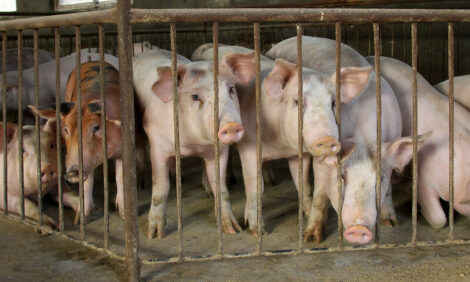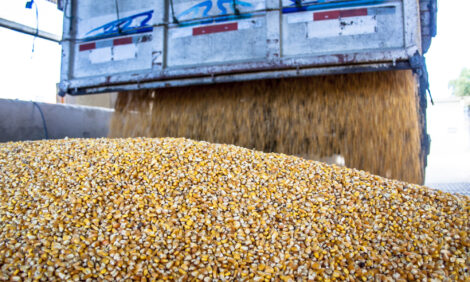



EU policymakers look to WSU gene-editing expertise
Most of the questions are around public acceptanceJon Oatley, a Washington State University professor in the School of Molecular Biosciences, was invited by the US Embassy in Romania to speak about his research into gene-editing livestock. But most of the questions the European policy makers asked had to do with public acceptance of the technology, according to a news release from Washington State University.
“I was invited to speak at this summit because of what we’ve been able to accomplish at WSU not just in the research world but also in the policy space. We’ve become the place in the US that everyone’s looking to for progress in this area,” said Oatley, who is also the associate dean for research at WSU’s College of Veterinary Medicine.
Oatley led the research team that developed “surrogate sires,” a gene-editing method which can help disseminate desirable and needed traits in livestock, such as better heat resilience. The technology promises to vastly improve protein sources to help feed the world’s growing population — but only if people will eat the meat from gene-edited animals.
Keenly aware of this limitation, Oatley and his team not only worked to secure Food and Drug Administration approval to put several CRISPR-modified pigs into the food chain but also ate the resulting sausage at a public cookout, inviting the media to try it themselves. The goal was to show that the meat from gene-edited livestock can be as safe — and as delicious — as meat from livestock that were selectively bred.
This is the same goal Oatley had in Europe where policymakers are very hesitant about anything that might be considered “genetically modified.”
“It’s not a concern necessarily about safety really,” Oatley said. “It’s the perception of how are we going to put something that could be considered genetically modified on to dinner plates? But we’re already doing it. We have been genetically modifying animals and crops through selective breeding for thousands of years. This is just a different tool.”
Gene editing involves working within a species’ genome to create changes in an animal or plant that could occur naturally. It often gets falsely conflated with genetic modification methods that insert foreign DNA from one species into another.
The most frequent questions Oatley received in Europe were about the potential need for labelling products, how gene-editing might affect animal welfare, and how to improve the public’s trust of science. Oatley doesn’t believe in the need for labelling meat from gene-edited animals if it has already passed safety tests as it should be on the same level as meat from selectively bred animals. He also argued that gene-editing research already self-corrects for animal welfare because if it is not good for the animal it would hurt production. Some gene-editing research, such as studies under way at WSU to eliminate long tails on sheep aim to improve animal welfare by removing the need for the practice of physically cutting off lamb tails.
Public distrust may be a trickier problem to solve. Past controversies involving companies with profit-motives have hurt perceptions, which is one reason Oatley feels it is so important that academic scientists participate in policy discussions.
“I’m not lobbying for any individual group. I’m a lobbyist for science — for science being used to inform policy decisions,” Oatley said. “I’m an academic scientist. I work every day on gene-editing animals, and I can say exactly how I do it, the tools I use, and what the outcomes are. I’m not somebody who is just talking about the science. I do the science.”
To help battle misperceptions, Oatley emphasized the need for better science communication by researchers themselves, improved high school level science education, and combatting misinformation online.
He has carried similar messages at policy forums in Brazil and the Philippines, but he also sees a need for more science-based policy leadership at home in the U.S. where he serves on a National Academies committee on heritable genetic modification in food animals.
In Romania, Oatley heard an EU official say that while historically Europe had looked to the United States for guidance on biotechnology regulation, when it came to gene editing, the U.S. had failed to provide leadership.
“The US is where a lot of the science innovation and developments are happening, and we’re not leading in the regulatory framework,” Oatley said. “So now EU states are starting to look to other countries. It’s unacceptable because we’re leaders of the science.”







